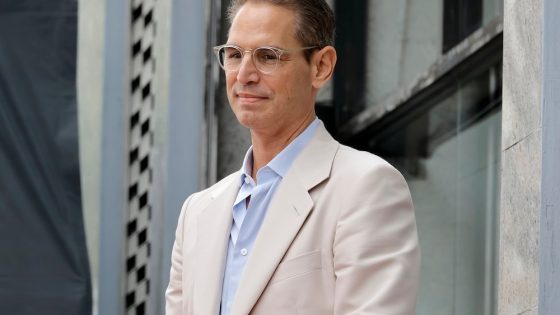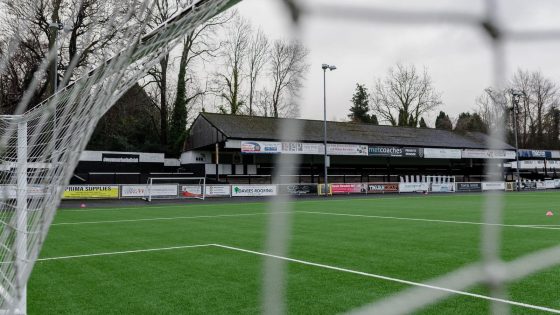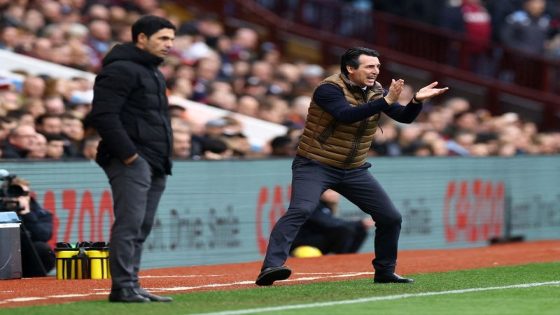When the WB Network offered Greg Berlanti the showrunner job for “Dawson’s Creek” during its third season, he turned them down — a few times.
“I thought that was a quick way to get fired, and I liked the job way too much to lose it,” Berlanti tells Variety.
Who could blame his hesitation? The teen drama series, already a cultural phenomenon, was Berlanti’s first job in television. He started in Season 2 as a staff writer on the recommendation of his college friend Julie Plec, a future force in the industry who was then working for series creator and showrunner Kevin Williamson. When Williamson and Plec left the series ahead of Season 3, the network brought in an outside showrunner to steer the ship, but by midseason they were eager for an in-house leader. They wanted Berlanti.
He eventually took the job, but with a few conditions. The most consequential of them was his insistence that Jack, the gay teen played by Kerr Smith, be able to kiss a guy he liked by the end of the season without the camera cutting away, the standard cop-out for same-sex affection at the time. Berlanti had worked with Williamson to write the character’s big coming-out episode in Season 2, and went to bat for this particular milestone because he felt Jack could authentically step into his own, even if it hadn’t been done before.
“I remember we talked about the violence airing at the same time ‘Dawson’s’ was on,” Berlanti says. “People getting shot and people getting stabbed in the heart on ‘Buffy the Vampire Slayer.’ It felt to me that if they can do those things, why can’t we show a tender moment between two members of the same sex?”
Kerr Smith in “Dawson’s Creek”
©Columbia Tristar/Courtesy Everett Collection
When it aired in the Season 3 finale, it was the first romantic kiss between two men in primetime and marked a profound step forward in LGBTQ representation on television. Berlanti’s hand in making it happen would, by itself, be enough to secure him a place in the Hollywood history books. But he used it to launch a career as a producer who has helped other creatives make groundbreaking television across the spectrum of representation. For his work, the Television Academy will honor him with the Governors Award during the 76th Emmy telecast on Sept. 15.
Not a fan of public speaking, Berlanti’s remarks from the Emmy stage “will be brief,” he says with a laugh. But he plans to thank every creator, showrunner, writer, actor and crew member who has helped him bring more than 40 series to television since his days on “Dawson’s Creek.” It was on that show’s Wilmington, N.C., set, far from Hollywood, that he first understood his brand of “making TV takes a village.”
“I quickly realized I wasn’t a David E. Kelley or an Aaron Sorkin who could write all the episodes myself,” he says. “What I learned the most was that I was very reliant on a base of writers who could figure things out and do it together. Maybe more than anything, that led to the business model I have today.”
As the head of Berlanti Prods., he has broken records for having a jaw-dropping number of shows on the air at one time, reaching its peak in 2019 with 18 series. While he knows those records often get the glory and the headlines, he places pride somewhere else.
“Whether we are doing two or 10 or 15 or 20 or one, for me, the real thing has never been the shows but the people,” he says. “I have been fortunate enough to be there for so many other individuals, as people were there for me. In a way, that has hopefully shown that the key to perceived success in this business isn’t just how much you are doing, but, actually, the amount of people and the kinds of people you can do it with. It is much more of a team sport.”
Berlanti’s producing slate is, nonetheless, impressive. At ABC, he produced a slew of dramas in the aughts like “Brothers and Sisters,” “Dirty Sexy Money” and “Eli Stone.” He helped change the creative trajectory of the CW by helming the Arrowverse, consisting of superhero series “Arrow,” “The Flash,” “Supergirl,” “Legends of Tomorrow,” “Black Lightning” and more. Also for the CW, he oversaw the arrival of new creative voices on shows like “Riverdale” and “All American.” Just in the last year, Berlanti Prods. had series on Max (“The Girls on the Bus” and “Titans”), Netflix (“You” and “Dead Boy Detectives”) and NBC (“Found” and the forthcoming “Brilliant Minds”). “All American” and “Superman & Lois” were also the sole scripted survivors of the CW’s sale to Nexstar.
In other words, it’s good to be in business with Berlanti. But most of these shows occupy a corner of the television landscape that awards often forget but audiences line up for –– the younger-skewing series. Berlanti has helped guide some of the most popular YA and genre series in the past two decades, many of which push the needle on representation for LGBTQ and POC audiences.
“These shows are a great place for creators and people behind the camera to start out,” he says. “But the reality is, when you ask someone what their favorite TV show of all time is, they will 90% of the time tell you it is something they watched when they were young. It’s not just a story they love, it is the time when they fell in love with television. So it is a real honor and privilege to be a part of those kinds of firsts for people. It is not something I have ever taken lightly because I know the impact it can have on your mind and your heart at that age in terms of expanding it.”
It’s why he never starts conversations with creators by asking what barriers they can break down.
“What I lead with in writers’ rooms or when I work with showrunners is to ask them: what is truthful to you?” he says. “This is an incredibly hard job. It is a deep, deep privilege. But it is also a lot of work and it has to be something that is inspiring to you first and foremost before it can ever inspire anyone else.”

“Red White and Royal Blue”
Jonathan Prime/Prime Video
That practice is still working. This year, Berlanti was nominated for a competitive Emmy for a TV movie as producer on Prime Video’s “Red, White and Royal Blue,” the adaptation of Casey McQuiston’s queer romcom best seller. The film has already scored a sequel that director Matthew López and McQuiston are almost done scripting. From what he’s heard about the story, Berlanti is just as excited as fans. “What’s so great is that it feels like the natural next step in the journey of these characters,” he says, being careful not to spoil anything.
The film is one of at least half a dozen projects he has in development. Even after two decades and counting, Berlanti says this beautifully chaotic moment, when pilots are being written and shows are being bought, never gets old.
“This is my happy place,” he says. “Going from room to room working on drafts and material in its most nascent stage because that’s when all of it is possible.”
Source Agencies




